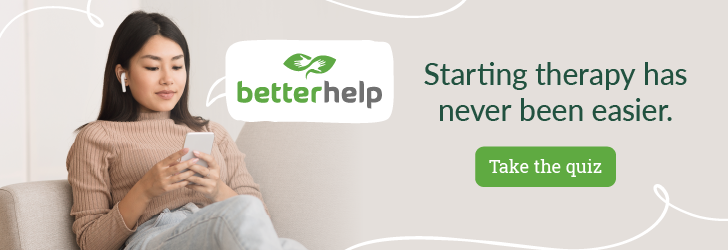Full Disclosure: Clicking on these links could mean a tiny commission for me, at no extra cost to you.
Having a loved one struggle with anxiety can be an incredibly challenging experience to navigate. While your instinct is to support them however possible, the relentless cycle of worry, panic attacks, and reassurance-seeking can gradually take a major toll on your own well-being if not approached mindfully. Without well-defined boundaries and self-care practices in place, the seemingly selfless act of helping someone with anxiety can paradoxically leave you feeling anxious, overwhelmed, and neglectful of your own needs. But that doesn’t mean you should ignore the struggles of those around you; you just have to learn how to help someone with anxiety while also maintaining your own mental health.
How to Help Someone With Anxiety While Maintaining Your Own Mental Health
Anxiety disorders are mentally and physically taxing for everyone, including the family members and friends that are trying to help. The constant state of hypervigilance, avoidance behaviors, and draining emotions can strain even the closest relationships over time. Fortunately, there are strategies for assisting loved ones through their anxiety struggles while preserving your own mental health and sense of self in the process. This balanced approach ensures your support remains sustainable long-term.
Understanding Anxiety
Before exploring specific tips on how to help someone with anxiety, it’s important to understand just how impactful and impairing anxiety can be for the person experiencing it. Symptoms like the following can significantly disrupt life activities, relationships, work performance, and self-confidence:
- Uncontrollable feelings of dread, panic and fear
- Obsessive negative thoughts spiraling out of control
- Chronic muscle tension, shakiness and lethargy
- Difficulty concentrating, restlessness, and irritability
- Physical symptoms like shortness of breath, nausea, numbness
No matter how irrational or illogical the anxiety may seem from an outsider’s perspective, these struggles feel incredibly real and frightening for your loved one in the moment. With this context, you can see why compulsions like isolation, reassurance-seeking, or lashing out become default coping mechanisms – even if counterproductive.
Ad

How Can You Help Someone with Anxiety?
Remaining compassionate and patient, without judgment about their anxiety is the key to supporting someone with anxiety.
Here are some additional steps to include in your journey to learning how to help someone with anxiety.
Set Healthy Boundaries and Expectations
One of the most vital self-preservation strategies when helping someone with anxiety is establishing firm boundaries around what is and isn’t your responsibility. A few examples:
- Set Clear Limits: Clearly communicate what you can and cannot provide in terms of support. Be honest about your own capacity and limitations.
- Prioritize Self-Care: Make self-care a priority by scheduling regular time for activities that recharge you, whether it’s exercise, hobbies, or spending time with loved ones.
- Respect Your Own Needs: Don’t neglect your own needs in favor of someone else’s. It’s important to maintain a balance between supporting others and attending to your own emotional and physical needs.
- Avoid Overextending Yourself: Be mindful of how much time and energy you’re dedicating to supporting others. Avoid overextending yourself to the point of burnout.
- Encourage Independence: Empower the individual to take responsibility for their own mental health journey. Offer guidance and support, but avoid feeling responsible for their progress or setbacks.
- Practice Active Listening: Practice active listening without taking on the emotional burden of their struggles. Validate their experiences without internalizing their emotions as your own.
- Seek Support for Yourself: Don’t hesitate to seek support from friends, family, or mental health professionals if you’re feeling overwhelmed. It’s okay to ask for help when you need it.
- Maintain Boundaries: Set boundaries around topics of conversation, particularly if discussions become triggering or emotionally taxing for you.
- Know When to Refer: If you feel unequipped to handle a situation or if the individual requires professional help, encourage them to seek support from a therapist or counselor.
- Monitor Your Emotional State: Pay attention to how supporting someone with their mental health affects your own emotional state. If you find yourself feeling constantly drained or overwhelmed, reassess your boundaries and consider adjusting them accordingly.
These personal boundaries create opportunities for growth rather than enabling paralysis or dependence on you.
Model Calm, Healthy Coping Mechanisms
Encourage Treatment and Independence
As overwhelming as anxiety disorders may feel, evidence-based treatments exist to provide relief and mute symptoms over time. A key aspect of learning how to help someone with anxiety is lovingly yet firmly prompting them to:
- Seek proper diagnosis, therapy, and other care they need to thrive
- Follow therapeutic homework, expose themselves to fears, and face triggers
- Celebrate independence, self-efficacy, and strength in resisting avoidance
While you can provide perspective and moral support, real anxiety treatment is up to them. Fortunately, there are many options – from online therapy services to in-person sessions
Allow Struggles and Missteps
Practice Self-Care and Set Boundaries
Even with the most valiant boundary-setting and positive modeling, helping someone with anxiety can drain your own emotional reserves faster than expected. Fatigue, vicarious anxiety, and burned-out compassion become very real risks without investing in self-care practices like:
- Maintaining your work, friends, exercise, and “separate” life commitments
- Scheduling therapeutic support for yourself if anxiety spills into your well-being
- Not canceling pleasurable activities due to their anxiety disruptions
- Setting communication windows where you’re unavailable to discuss their condition
- Delegating responsibilities to others and saying “no” when required
The healthier, more centered, and more grounded you remain, the more effective your presence and role modeling become in assisting them through their anxiety.
Build Your Community Support System
Given the emotional intensity and patience required, you cannot thrive as the sole support pillar for someone with anxiety indefinitely. It’s important to cultivate a caring community to draw from, including:
- Close friends and loved ones you can openly discuss struggles and setbacks with
- Community support groups providing relatability around these experiences
- Therapists or counselors focused on your unique self-care needs
- Supportive coworkers to provide professional encouragement and space
- Trusted programs or providers to temporarily step in during acute crises
This network helps reduce codependency with your loved one struggling while preserving your resilience, autonomy, and identity entirely separate from your condition.
Remember Your “Why”
Ultimately, the most powerful drivers for learning how to help someone with anxiety without losing yourself come from within. Revisiting your motivations – be it love, commitment, empathy, or core values – strengthens your resolve to pour from an abundant cup rather than feeling depleted.
These “whys” provide enough fulfillment and perspective to celebrate small victories when helping your loved one cultivate stability, self-belief, and independence. You recognize anxiety doesn’t define them, so you approach support with compassion rather than self-sacrifice.
As your cup remains full, you’re reminded that the most valuable gift lies in their regaining autonomy one step at a time. And you continuing living your joy-inspired life serves as a powerful model of the freedom awaiting them in recovery.
Learning how to help someone with anxiety is an incredibly selfless act. It requires intentional detachment, strong boundaries, and prioritizing your own needs consistently to ensure that your efforts are equally beneficial and healthy for you too. And from this stable ground, your loved one receives the highest expression of care and support.









